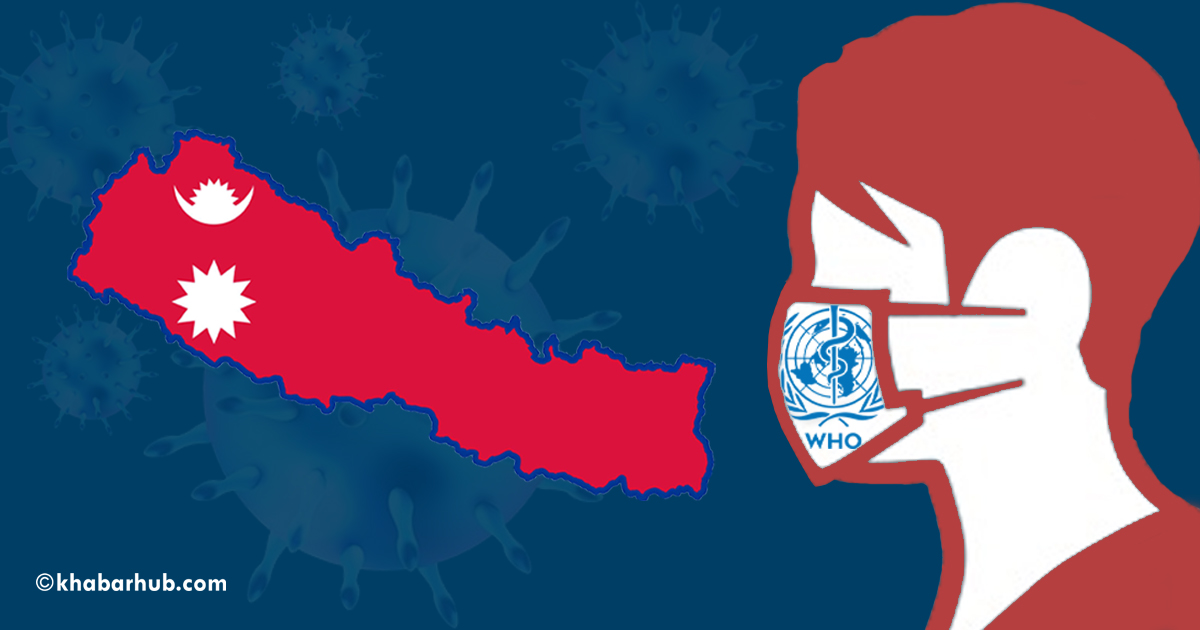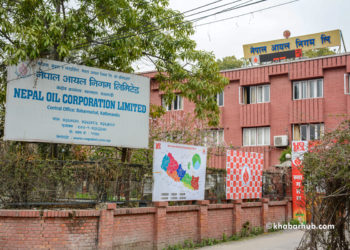The world currently has the most virulent form of the pandemic at its hand. The COVID-19 outbreak has taken a seismic toll on the public health and economic well-being, rampaging the economies and societies across nations.
While cases remain low in recent times, countries recovering from the pandemic are now starting to fear the second wave that can easily re-ignite.
A lot is at stake for a least-developed country like Nepal as rushing to ease the restrictions could be detrimental.
The country has been spared so far, but uncertainty looms, given the struggling pandemic response on every dimension that is emanating from limited state capacity, weaker public health infrastructure, lack of good governance, fragmented authority, corruption and lack of transparency.
Engulfing thousands of people irrespective of the social dimension, the ongoing global health pandemic requires collective action and this is where the role of Global Health Governance (GHG) has always been decisive.
In confronting the pandemic, health experts have been reiterating the government to focus more on the preventive and curative aspect, as the country is not in the position to handle if exposed to extreme stages.
Dr. Ilona Kickbusch, a global health reformer, defines Global Health Governance (GHG) as those institutions and processes of governance related to an explicit health mandate, such as the World Health Organization (WHO) or Global Fund to Fight AIDS, Tuberculosis and Malaria (GFATM).
The WHO at the core of the arena is a GHG agency; it holds the constitutional authority within the UN framework for approving agreements, issuing guidelines and ensuring the member states with technical assistance for the security and promotion of global health.
Looming Uncertainty
These are critical times for countries like Nepal, home to a large number of vulnerable and poor households. With its economic model based on remittance, heavy dependence on large-scale outward migration and foreign aid, the prolonged outbreak is expected to disrupt the lives of many.
In confronting the pandemic, health experts have been reiterating the government to focus more on the preventive and curative aspect, as the country is not in the position to handle if exposed to extreme stages.
Nepal has been largely spared as yet, considering the pandemic has been under control with growing recovery cases.
Nepal’s preparedness for COVID-19 especially with its fragile health care system is visibly inadequate and incompetent to combat a large-scale pandemic.
A well-functioning GHG like WHO is the need of the hour, particularly for countries that can’t help themselves on their own.
The control measures have been easier to preach than practice, particularly in deprived communities where both water and space are in short supply, increasing the profound risk of the pandemic to rise again making them further vulnerable.
The Government of Nepal, at present, has introduced the Rapid Diagnostic Test (RDT) and Polymerase Chain Reaction (PCR), and Mass Testing (MT) to speed up coronavirus testing. Nevertheless, as the country doesn’t own a high capacity production facility, it has been opting for imports to bring in essential medical tools and supplementary equipment.
Meanwhile, in running the tests, the issues of short supply have started surfacing; consequently, slowing down the testing process, adding up further to the issue is the poor status of doctor-patient ratio, at 1724:1, below the prescribed limit of 1000:1 by WHO.
GHG institutions such as WHO comes to its own in countries like Nepal, that are poorly resourced and requires intervention, professional expertise, and coordination across borders.
WHO provides the safety mechanisms of healthcare at the country level through global health initiatives and funding mechanisms.
The initiatives launched by WHO through its Operations Support and Logistics unit, COVID-19 Strategic Preparedness and Response Plan, UN COVID-19 Supply Chain Task Force together with several other efforts are crucial for developing countries like Nepal, in identifying major actions and with the supply of required protective equipment which they are unable to have access to.
Albeit the recovering trend, the elimination of the virus seems unlikely any time soon, thus, Nepal is still highly susceptible to the risk of uncontrolled spread.
In hope that things have turned a corner, ending the lockdown measures devoid of proper policy adoption, a robust system of testing and contact tracing, could inevitably result in an explosive outbreak, again.
Plenty of uncertainties arise, given the observation of WHO itself, as asymptomatic people do prevail with mild symptoms, increasing the likelihood of virus slowly circulating under the radar in communities. Concerns also arise on the potential surge of the virus emanating again through the porous land borders of Nepal.
A generalized lockdown is not a viable long-term prevention strategy; therefore, an additional level of resilience is required in vulnerable communities. People need supplies at hand and preventive guidelines in order to be restrictive and follow the safety protocols.
Defunding, a costly move
The Government should do all they can under the circumstances but will need an authoritative body like WHO to support and invest substantially for alleviating the effects on developing countries like Nepal.
A well-functioning GHG like WHO is the need of the hour, particularly for countries that can’t help themselves on their own. However, US President Donald Trump’s announcement on halting the funding for WHO in the middle of the pandemic has raised multiple concerns when WHO needs its money the most.
Heather Teixera, Health Policy and Communications Advisor at the International Rescue Committee states: “Crippling the ability of the WHO to do its job, will devastate the response capability of countries who are already least prepared to respond to COVID-19, and will ultimately perpetuate the pandemic”.
Moreover, the caveat here is, WHO will not only lose a significant sum of funding but this can have grave repercussions on containing the pandemic, particularly in countries depending on WHO the most.
In the global health crisis, when the needs are tremendous, overwhelming the entire system, significant responses are required in poor or least developed states owing to their weaker public health infrastructures and greater population susceptibility.
WHO can align the global community around critical health crises and has always been at the forefront for limiting the spread of infectious diseases and explosive outbreaks in the poorest and deprived parts of the world.
As a matter of fact, even if a vaccine is created to eventually stop the virus, the world will still need an organization like WHO, for executing mass vaccination campaigns and resilient methods for containing such a health crisis on a global scale and outreach.
Getting ahead of the crisis
There is a clear collective need for international cooperation with the integrated nature of global partnership in order to get ahead of the virus.
Winning the fight against the virus is only achievable through shared responsibility and global solidarity.
While we deem ourselves to be fortunate so far, there is no assurance as to what the future might hold, considering the severe lack of prevention mechanism, lack of robust government leadership, and a dearth of good policy directives.
However, as Clare Wenham, Assistant Professor in Global Health Policy at London School of Economics and Political Science puts it, “No one is thinking about reducing the global numbers, only their own. The WHO is a global force, but people aren’t thinking globally”.
Of course, WHO is not without its flaws and we do hold the right to be critical towards it. Nonetheless, equally important is the fact that this particular pandemic cannot be fought with segregated spirits and with a greater reason calls for collective response through shared understanding.
As many definitions of global governance put “interdependence” at the center, WHO as a global health institution, therefore, is not designed to work independently.
Halting the funding at this point of time will restrain the organization to function in its full potential, impelling billions of improvised and terrified populations with debilitated government system and poverty, to see the worse outcomes.
While we deem ourselves to be fortunate so far, there is no assurance as to what the future might hold, considering the severe lack of prevention mechanism, lack of robust government leadership, and a dearth of good policy directives.
The new waves, if befallen, can lead to multiple restrictions devastating the health, economy and livelihoods of many.
At a time when high-income countries around the world are occupied with their own numbers, peripheral countries like Nepal are left with very limited or the only option like WHO.
Nepal, therefore, needs WHO to help ensure the right kind of resources to be brought to bear, for consistently and effectively meeting the needs of the people who are already vulnerable and are further likely to be much more vulnerable as the result of the pandemic.
(The writer is Research Associate at Nepal Institute for International Cooperation and Engagement (NIICE) Kathmandu, Nepal)









Comment